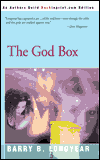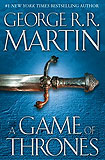
The Looking Glass Wars, by Frank Beddor
Book Review by J Y Saville
Alyss Heart is the heir to the throne in the matriarchal society of Wonderland, an only child surrounded by members of the royal household and hence somewhat spoilt, though not nearly as bad as the odious Jack of Diamonds who she seems destined to marry when she grows up. A rebellion by the Queen's older sister, passed over in the succession due to her adherence to Black Imagination, causes young Alyss to flee, ending up separated from her bodyguard for thirteen years in Victorian England, where everyone tries to convince her that Wonderland is just in her head.
Following Alyss from age 7 to age 20, there is naturally a theme of growing up, fulfilling your potential, learning to fend for yourself, and being let down or betrayed by adults. One of the major betrayals of course is the book Alice in Wonderland itself: Alyss tells her life-story to Charles Dodgson who seems to be the only person to believe her, then he writes a garbled, nonsense version of it and publishes it under the pen-name of Lewis Carroll.
Beddor could have gone much further with the 'reality behind the myth': for every mundane explanation such as the White Rabbit of Carroll's book being in reality an albino with large ears and a pocketwatch, there are a handful of things which seem to have migrated from Lewis Carroll unchanged, such as the giant caterpillar sitting on a giant mushroom smoking his hookah. There doesn't seem to be much clarity on what 'imagination' means, either -- at times the term is used interchangeably for telekinesis or telepathy, sometimes it just means imagination, and sometimes it's presented as a kind of religion or philosophy. White Imagination is what Alyss and her mother serve, concerned with justice, love and duty, whereas Black Imagination, never quite defined, is essentially anything that's bad. This haziness of concept also meant that characters could go miraculously undetected in a situation where they should probably have been spotted by spy devices detailed in an earlier chapter.
The book is apparently intended for ages 12 and up, and while I generally enjoy fantasy novels meant for kids I did find the style of this one less sophisticated than I'd have liked, although this may be the author's background in films leading him to a visual scene-setting, action-heavy simplistic form. The short chapters cutting between different scenes seem designed for a short attention-span but it can feel a bit jumpy. That said, the action drew me in after a while and I sped through the book, eager to know what happened, but ultimately I was left unsatisfied. As the first in a series, the ending is very much 'to be continued'. It may appeal to those who prefer the kind of quick and easy read where it's more about the action and dialogue than about backstory, motive or reasoning.
|
Click here to buy The Looking Glass Wars, by Frank Beddor on Amazon
|
The Looking Glass Wars, by Frank Beddor on Amazon

| More Books You Might Like |
| Comments on The Looking Glass Wars, by Frank Beddor |
| There are no comments on this book. |




